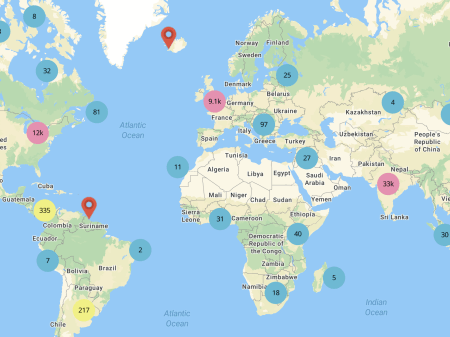
From grain handlers to credit unions, co-operative enterprises as employers are assuming a leading role among social partnerships.
Together, co-operative enterprises constitute a major part of the world’s economy. Latest research suggests that the largest 1,500 or so cooperative firms have a combined turnover of US$2.5 trillion.
And in the business world, co-operative enterprises are flexing their executive muscle. Perhaps the most significant example comes from Australia, where the Business Council of Cooperatives and Mutuals (BCCM) was formed in 2012, the UN International Year of Cooperatives.
BCCM brings together a wide range of co-operative businesses, ranging from grain handlers and dairy producers, to member-owned retailers and credit unions.
According to its website, BCCM provides “a national networking home of co-operative and mutual businesses, where the entire, diverse range of member-owned businesses can foster innovation and build business relationships”. BCCM members believe that, “an economy with a higher incidence of co-operative and mutual businesses will help to build a more inclusive, prosperous and sustainable Australia”.
Signalling the growing importance of co-operatives as employers, the Business Council’s chair, Andrew Crane (himself the CEO of a large Australian agricultural co-operative) has been appointed to the B20 group of industrial leaders, advising the host Australian government ahead of this year’s forthcoming G20 summit.
It is the first time a business leader from the co-operative sector has participated in a high-level advisory body of this kind.
Coops as big employers
The International Co-operative Alliance (ICA) points out that co-operatives are major employers, both in developed and developing economies.
But what do co-operatives as employers do that gives them value? Aside from giving each worker-member an equal voice represented by one vote, no matter how much equity they own, co-operatives have been proven to be resilient in times of economic crisis, thus providing jobs in good times and bad.
In the United States, 30,000 co-operatives provide over two million jobs; in France, 23,000 co-operatives employ 1,070,000 staff and in Kenya, 63 per cent of the population work in co-operatives. Worldwide, in the insurance sector alone, a million people are employed by insurers operating as co-operatives or member-owned mutuals.
Although co-operatives have always identified more closely with trade unions because both are based on the idea of organizing for collective self-help, they can also be found in the ranks of employers’ associations because of their role as employers.
The European model of sectoral social dialogue between social partners provides a good example. In the banking sector, for instance, there are three employers’ organizations, including the European Association of Cooperative Banks (EACB). And in the insurance industry dialogue, trade union UNI Europa sits across the table from the Association of Insurance Mutuals and Insurance Cooperatives in Europe (AMICE), one of the three recognized employers’ bodies.
Co-ops as social partners
In some countries, co-operative organizations can become part of an employers’ organization and are acknowledged either formally or informally by their governments for their role as social partners. In Vietnam, the national apex body, the Vietnam Co-operative Alliance, is seen as the second employers’ federation, after the Vietnam Chamber of Commerce and Industry.
These two bodies have worked in recent years with the Minister of Labour and the Vietnam General Confederation of Labour, as well as with the International Labour Organization, on the revision of the labour code, reform of trade union legislation and setting the minimum wage level. The Vietnam Co-operative Alliance has also been able to work for the amendment of the co-operative law in the country, successfully brought about in 2012.
Emmanuel Julien of the ILO’s Enterprises Department supports this approach: “Co-operatives can strengthen the representation of employers' organizations. They embody a stable relationship with local communities and workers, which is likely to make them more resilient to crisis”.
He adds that co-operatives can, in turn, benefit from increased working relations with other forms of enterprises and learn from them. “It is a win-win idea,” he concludes.
Click here to read the original article on the ILO's website.




